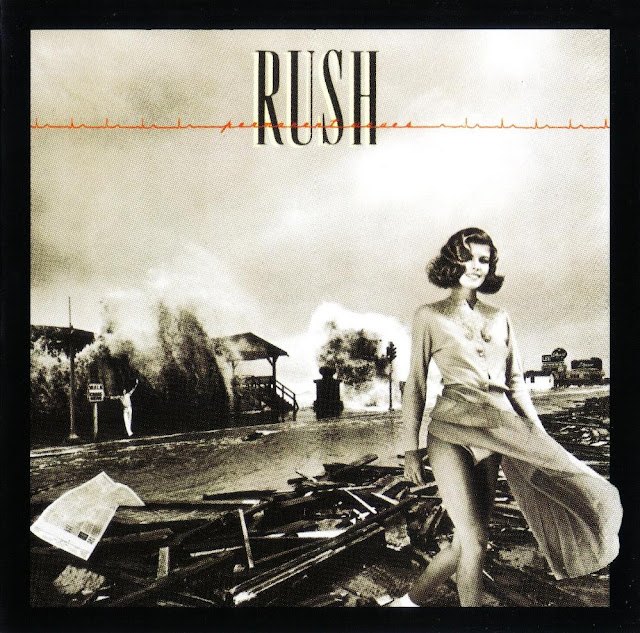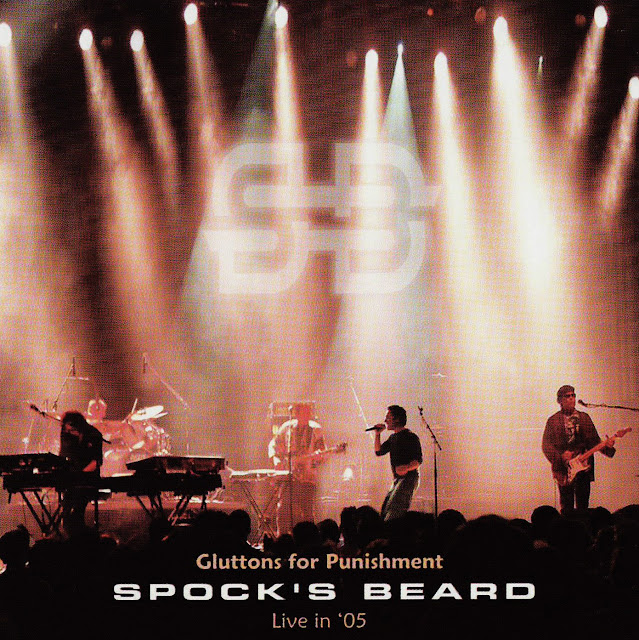Album Review: Rush - Permanent Waves
I've taken some criticism for reviewing older albums before, but that's fine with me. If you don't like to read these older reviews, my suggestion to you is that you just browse back out of this review, and read something else. For those of you that don't mind reading the older reviews, today I want to talk about Rush's 1980 studio release, "Permanent Waves", because it is a fantastic album, and the one that I am currently listening to.
The legend says that "Permanent Waves" was released on January 1st of 1980, making it the first album to be released in the 80's. I don't know if that's necessarily true, or not, but it does make for a nice thought. Of all the albums that come after it, "Permanent Waves" led the way. It has a nice ring to it. And while it doesn't necessarily have the stereotypical 80's sound, it is certainly a departure for the three Canadian musicians that wrote it.
With only six songs to choose from, "Permanent Waves" is nearly the shortest LP in Rush's twenty album studio discography, at just over 35 minutes (2004's "Feedback" album is the shortest, but since it's a cover's EP, and not an LP, I'm still going to call "Permanent Waves" the band's shortest LP). But what the album lacks in minutes, it more than makes up for in sheer quality, as this is one of the band's finer albums.
The album kicks off with one of the most well known songs in the band's catalog, as Alex Lifeson brings us into "The Spirit of Radio" with one of the most recognizable intro riffs in all of rock. Okay, I don't know if I can back that up with any facts, but I'm betting it's true as it is such a monster riff. And the song only gets better from there, as the band tell us about a corrupt, and damaged FM Radio format. Musically, though this song is a far cry from the band's longer, side long tracks, this more concise story is a cautionary tale, full of tasty riffs, a pounding rhythm section, and some of the most thoughtful lyrics in Rush's catalog.
Track two speaks of "Freewill", given by a fictional spirit in the sky through it's lyrics. And while the sentiment of the track may turn some listeners off, I think it has a positive message of living for ourselves, and not for a celestial voice that may make our choices for us. Musically, this song feels like a total jam track, especially during the instrumental break, that is brought in by one of Geddy's greatest recorded solo moments.
Side-A (that's right, I'm reviewing the album, and not the CD... though I'm not sure you can tell the difference here) ends with "Jacob's Ladder", one of Rush's final 7+ minute tracks. With only a few verses of lyrics here, and no chorus, this song is powered by one of Rush's coolest instrumental tracks. The first part of the track is a rhythmically driven intro section, with bass guitar, and synths really driving the start of this show. The middle part of this first section is a feast for guitar fans, as Alex plays through some of his tastiest guitar bits on the album. The second section is very synthesizer driven, with guitars finally coming towards the end, and propelling us to the third section of the track, which is a much heavier affair, and one hell of an intense ending.
The second half of the disc kicks off one of the greatest "forgotten" songs in Rush's catalog, at least in my opinion (then again, this entire review is my opinion... is it not?). Once again, this tune is very synth heavy, but the guitars compliment them amazingly well. The verses have a very tasty guitar riff that would steal the show, if not for Geddy's fantastic vocal melody. The chorus also features some incredible work from Alex, this time on the acoustic guitar. As always, the rhythm section is absolutely second to none here, with Neil playing like the beast he is, turning in a very cool drum track. One of my favorite parts of this song is the synthesizer solo just before the third verse of the song. I think that this is one of Geddy's finer moments on the keys.
"Different Strings" is sort of a rarity in Rush's career, as the lyrics were written by Geddy Lee. When Neil Peart joined the band after the first album, he sort of took over the lyric writing. This track is one of the most beautiful songs in the band's career, with acoustic guitar and piano (there isn't much piano to be heard on Rush albums). The vocals are dripping with emotion, with a bass line that really is up there among Geddy's best, and the guitar solo may be in many top lists as well. Though this song has never been played live, it really is one of Rush's greatest "forgotten tunes".
The album closes with the fan favorite "Natural Science". And though the band decided to move away from the epics on this album, this track is the very definition of an epic track. It's broken into three distinct parts, and contains some of the absolute best music in Rush's vast catalog of music. There are some absolutely blistering guitar solos from Alex, some very tasty playing from Geddy, and perhaps some of the greatest drum fills in Neil's career. It's not hard to see why this epic, hard rock prog masterpiece, comes in so high on so many of Rush's fan's top ten lists. It really embodies all that is special about this incredible group.
And with waves crashing in and out, Rush's seventh studio LP comes to an end. With the next album Rush will find global acclaim, and move even further from their 70's sound. "Permanent Waves" remains in my top five Rush albums of all time, and yet sometimes I wonder what it would have been like if the band had continued on in the same fashion as "Hemispheres". Would they have eventually slipped into obscurity, as some of the great prog acts of the 70's did? Or would they have continued getting better with each album? Who can say? One thing is for sure, though this album did signal a big change for Rush, for many that change was for the better. For me, any Rush is good Rush.
Buy the CD from the Rush Backstage Store




Comments
Post a Comment